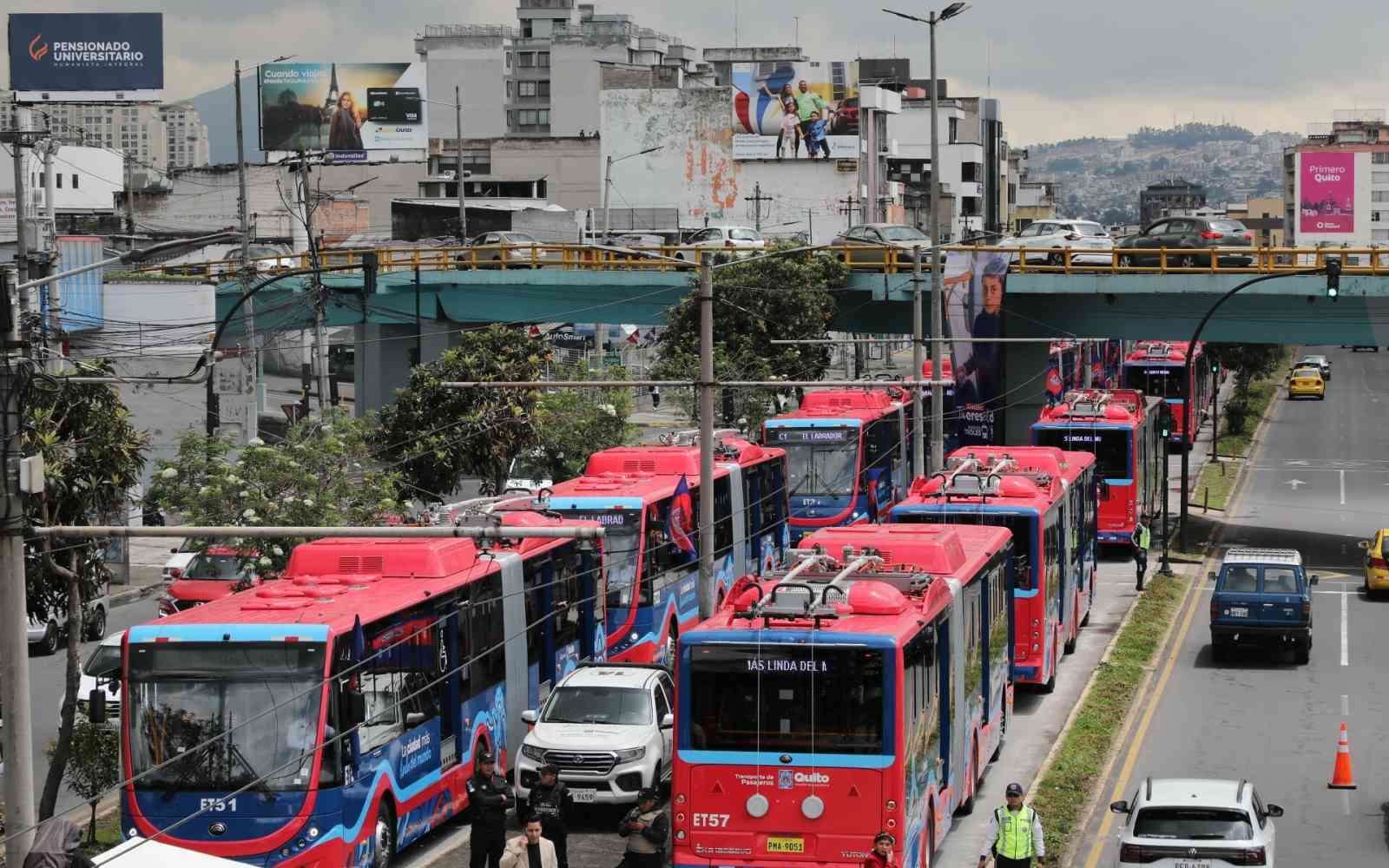The United Nations Office for Project Services (UNOPS)
Network for climate action moves forward
The Santiago network for Loss and Damage will catalyze technical assistance and boost the capacity of vulnerable developing countries to effectively manage climate-related loss and damage.
This article was originally published on 7 March 2024, under the title 'UN General Assembly moves forward network for climate action'. It has been updated to reflect recent developments.
Latest updates
7 February 2025
- The Santiago network and the Fund for responding to Loss and Damage (FRLD) have partnered to better support vulnerable communities facing climate change impacts.
- This collaboration will help streamline access to technical assistance and financial resources for developing countries, share knowledge, and coordinate delivery to maximize efficiency and build long-term resilience.
Read more.
23 December 2024
Following a request from the government of Vanuatu, the Santiago network has launched its first call for proposals to catalyze technical assistance – marking a significant step towards the network’s full operationalization.
This demand-driven technical assistance will support Vanuatu to develop a long-term nationally determined country programme to address loss and damage associated with the adverse effects of climate change.
Read more.
10 October 2024
Carolina Fuentes Castellanos has been appointed as the first Director of the Santiago network – bringing over 25 years of experience in sustainable development and climate policy to the role. She previously worked for 10 years with the Green Climate Fund and served in the Mexican government, holding key positions such as Deputy Director General for International Cooperation and Director for Climate Change at the Ministry of Environment and Natural Resources.
Read more.
6 September 2024
The third meeting of the Advisory Board took place from 4 to 6 September 2024 in Bonn, Germany. Ahead of the meeting, UNFCCC Executive Secretary, Simon Stiell, provided remarks to the Advisory Board on advancing the work of the Santiago network.
In pre-recorded remarks during the opening of the meeting, COP29 President-Designate Mukhtar Babayev said: “As the COP29 Presidency drives progress on loss and damage this year, we recognize the Santiago network as a crucial part of this ecosystem. Its work will be critical to ensure that technical assistance is provided to those standing at the front line of climate change.”
The Advisory Board approved key guidelines and processes necessary for the network to begin delivering technical assistance to those vulnerable to the adverse impacts of climate-related loss and damage. Progress was made towards the network’s strategy and the establishment of a permanent secretariat.
Read more.
4 July 2024
The second meeting of the Advisory Board of the Santiago network was held in Geneva on 4 July 2024, following two days of informal consultations. The hybrid meeting was also attended by observers from non-governmental organizations, intergovernmental organizations, Parties, States and the UN system, as well as the interim secretariat, representatives from the incoming COP Presidency (Azerbaijan), UNFCCC, and UNDRR and UNOPS as co-hosts of the network.
During the meeting, progress was made on the full operationalization of the network, development of guidelines on the provision of technical assistance and the process for membership of organizations, bodies, networks and experts to the Santiago network.
Read more.
21 March 2024
At the first meeting of the Advisory Board of the Santiago network, held from 18-20 March 2024, Geneva, Switzerland, was selected by the Advisory Board as the host city of the headquarters of the Santiago network secretariat.
Read more
Following the adoption of a UN General Assembly decision to formalize the implementation of the Santiago network, partners have agreed on the next step in getting the network up and running. It represents a major step towards enhancing capacities to avert, minimize and address loss and damage.
The UN Office for Disaster Risk Reduction (UNDRR) and UNOPS signed a Memorandum of Understanding with the UN Framework Convention on Climate Change (UNFCCC) Executive Secretary (signing on behalf of the COP and CMA) to co-host the network’s secretariat – marking a significant milestone towards the network’s full operationalization.
There is an urgent need to ensure vulnerable developing countries hardest hit by the climate emergency can access the technical assistance they need to foster resilience, build capacity, and manage climate-related loss and damage.
“UNOPS is proud to have been selected with UNDRR to co-host this critical platform, and we look forward to combining our areas of expertise to ensure developing countries can accelerate their climate action ambitions,” added Jorge Moreira da Silva.
The Santiago network was established with the goal of mobilizing the technical assistance needed by vulnerable developing countries to support their efforts in averting, minimizing and addressing climate-related loss and damage.
“This is an important next step in advancing the critical agenda of climate loss and damage as set out in the COP28 outcomes and lays the groundwork for reaching crucial milestones in 2024,” said Paola Albrito, Acting Special Representative of the UN Secretary-General for Disaster Risk Reduction and Head of UNDRR.
“The Santiago network represents the best of multilateral system coherence in advancing climate action and we thank governments for entrusting UNDRR and UNOPS with its operationalisation,” she added.
Emphasizing collaboration and coordination, the network connects vulnerable developing countries with providers of technical assistance – including entities from civil society, non-governmental organizations and the private sector – with knowledge and resources to address climate risks and take impactful actions at the local, national and regional levels.
The network will operate in coordination with the Loss and Damage Fund – adopted during last year’s 28th UN Climate Conference (COP28) in Dubai. Together, these initiatives will deliver the necessary policy, finance and technical assistance for vulnerable developing countries to enhance their capacity to manage climate-related loss and damage.













